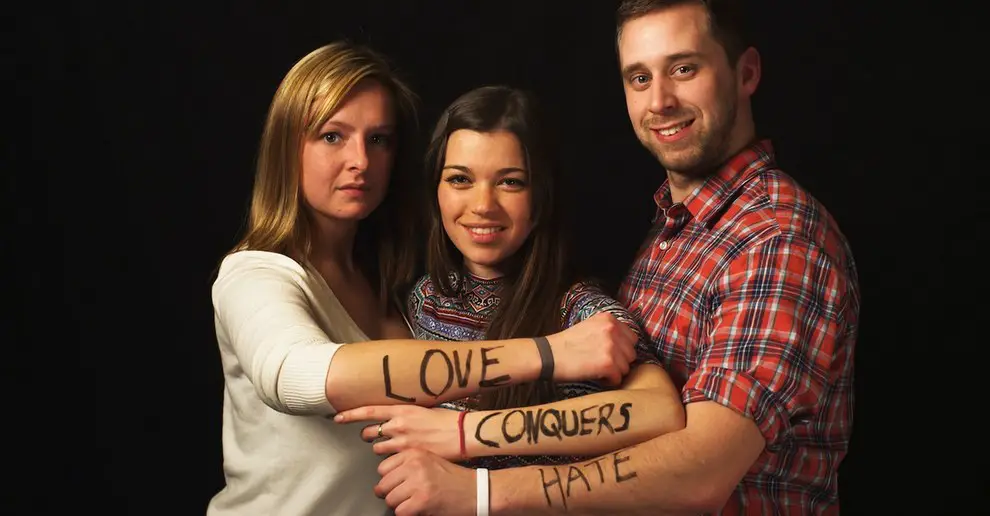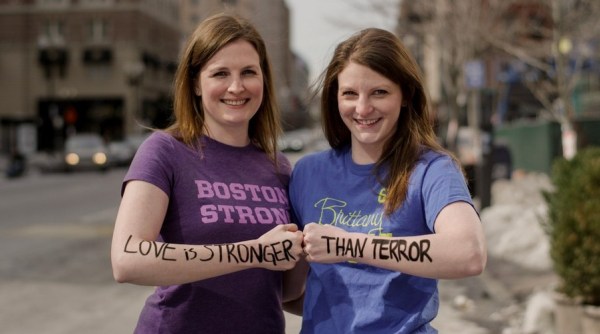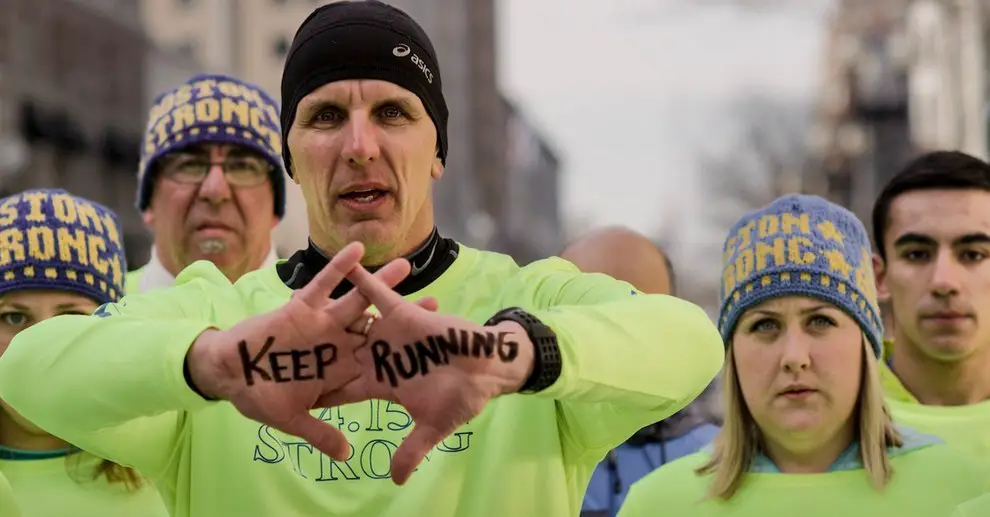
As the one-year anniversary of the bombing at the Boston Marathon approaches, photographer Robert X. Fogarty, known for his message-on-skin portrait project called “Dear World,” asked marathon survivors, first responders and supporters to return to the finish line.
He captured their images and shared their messages of healing, hope and love for Boston with the world.
In a letter to the survivors, Fogarty writes:
“What happened that day was terror. Terror happens when love is absent.
Boston is a city of love stories now.
Thank you for sharing yours here. As you heal, know you inspire the rest of us to be better, still.
All photographs and stories are courtesy of Dear World.
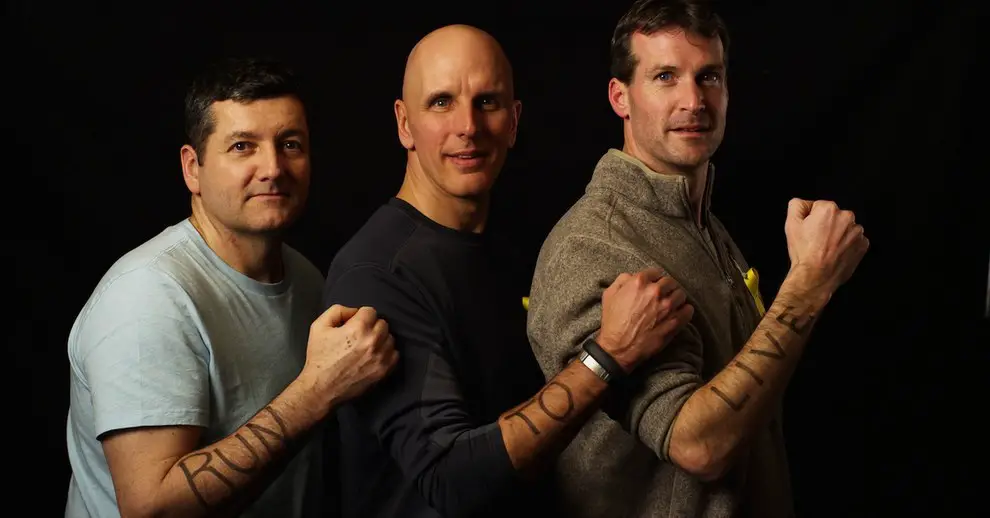
Celeste Corcoran, survivor.
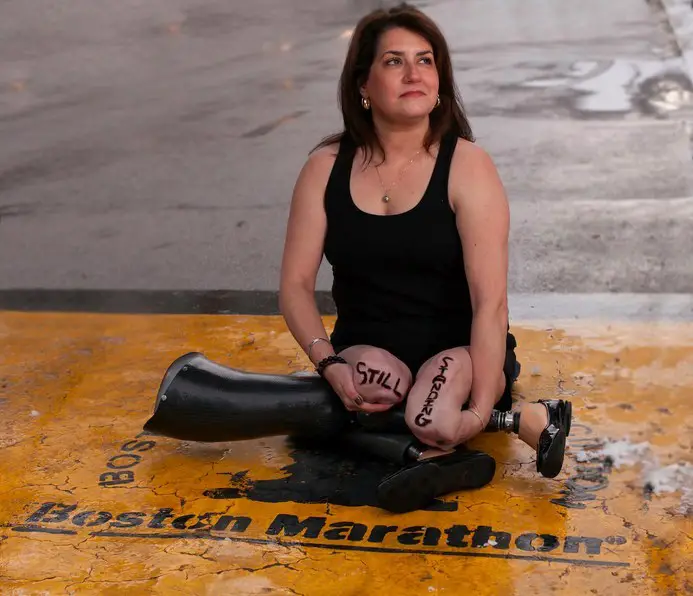
“I’m Celeste Corcoran from Lowell, Massachusetts. My message is “Still Standing.” I wrote still standing because the bombers hurt me—they took my legs—but I can still stand on them. I just love the play on the message. Writing it on my naked legs, seeing those words and having the prosthetics next to me.
I’m still standing.”
Sydney Corcoran, survivor.
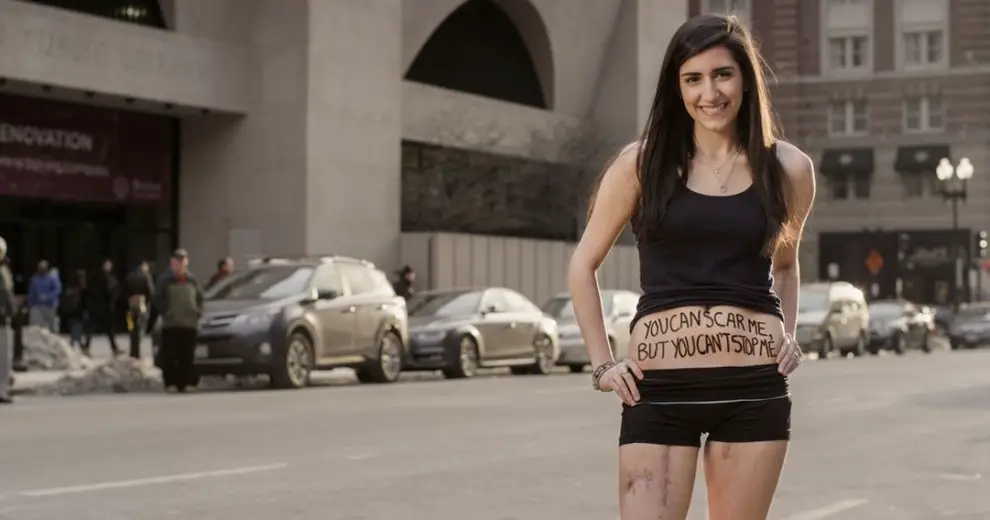
Sydney Corcoran: “My name is Sydney Corcoran, I am 18 years old, and I live in Lowell, MA. My message was “You Can Scar Me, But You Cannot Stop Me.” I think that everyone has scars, and we should embrace them. I’ve learned that we can overcome the obstacles that gave those scars to us.”

In memory of Sean Collier. Jan. 3, 1986 — April 18, 2013.
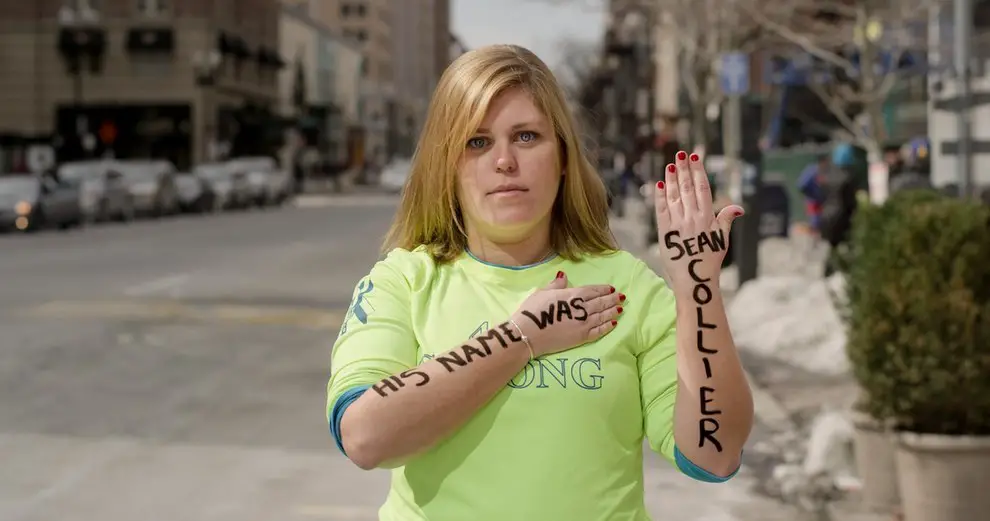
Pictured: Elizabeth Bermingham, marathon survivor.
Roseann Sdoia and Heather Abbott, survivors.
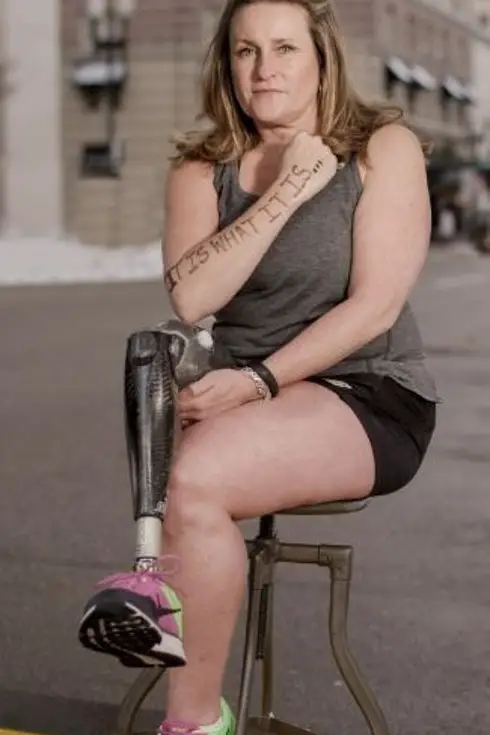
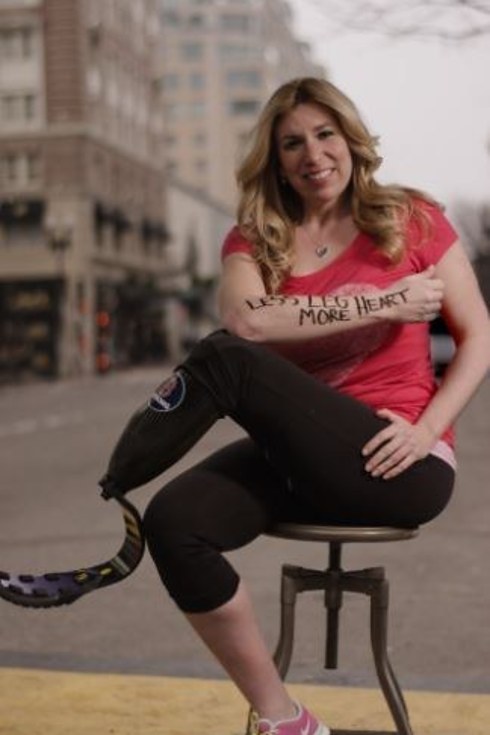
Roseann Sdoia: “My mom told me that this is what I said when I came out of my medically induced coma. We have deformities to our bodies, but I think it makes us stronger to be so open with it. I think it’s part of our therapy to get through what happened to us. I feel like it was supposed to happen. I feel like my life was supposed to change. I don’t know if it’s to help others, but I feel like there was a reason for it. It happened to help bring some sort of awareness to disabilities or amputations. You definitely look at the world differently.”
Heather Abbott: “My message is “Less Leg, More Heart.” And the reason I chose that message is because since I lost my leg at the Boston Marathon, I’ve become what the world considers and certainly America considers a handicapped person. And that’s a very new concept for me having been a healthy woman in my thirties before the marathon. I have a new appreciation for people who are considered handicapped and a new compassion for them and the struggles they go through. I think that the experience of losing my leg has made me become more compassionate, so I may have less of a leg now, but I think my heart is bigger because of it.”
Lee Ann Yanni, survivor.
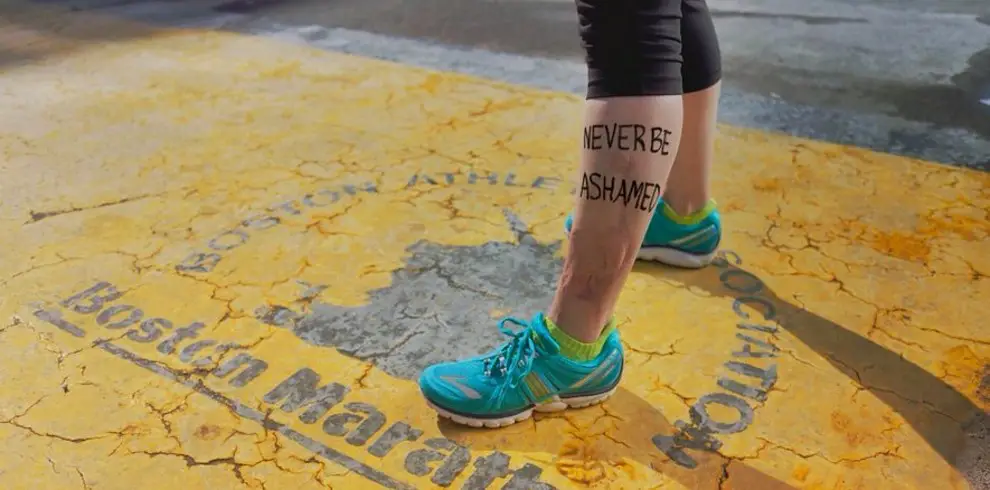
“My name is Lee Ann Yanni, and I’m from Boston, Massachusetts. I wrote “Never Be Ashamed” on my leg because the one thing that was hardest for me to get over was how my leg was never going to look the same, and I’m learning to be more proud of it.
I read a quote, and it said “Never be ashamed of a scar. That it only means you are stronger than what tried to hurt you.” And it really resonated with me. I am strong, and this is just a little token.”
In memory of Krystle Campbell. May 3, 1983 — April 15, 2013.
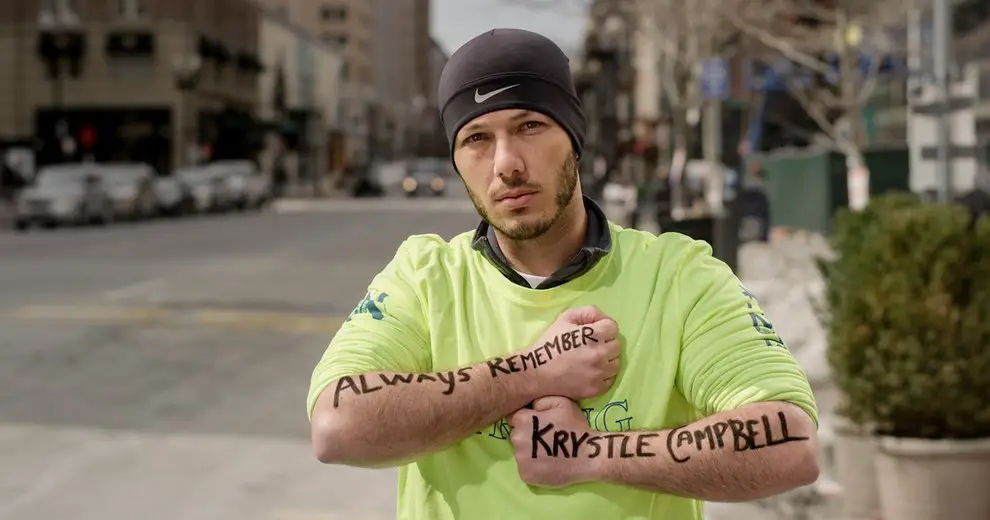
Pictured: Nick Yanni, marathon survivor.
David Yepez, survivor
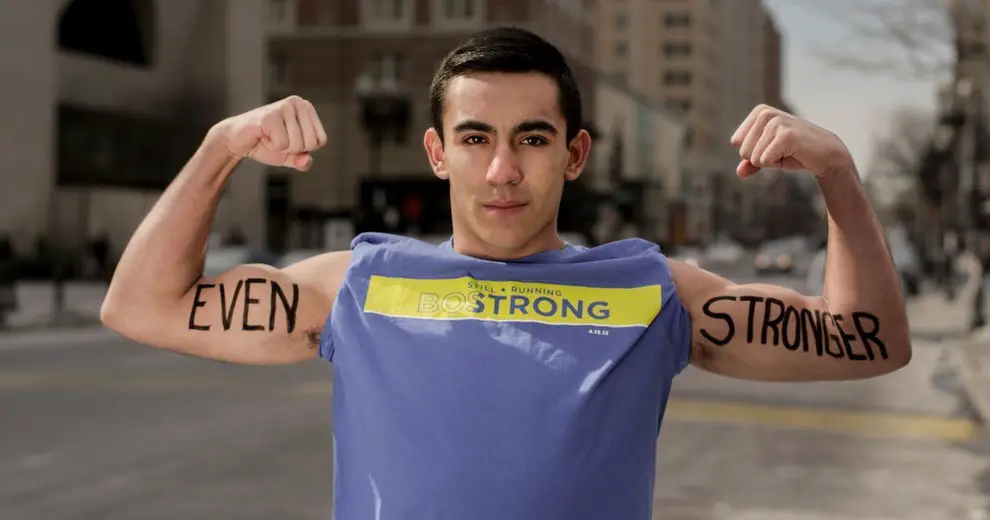
“One thing that I’ve learned since last April is that in the world there are many bad people, but that there are also many good people that outweigh the bad people. When the bombings occurred, immediately there were people from all around the world of all ages who supported in any way they could.”
In memory of Martin Richard. June 9, 2004 — April 15, 2013.
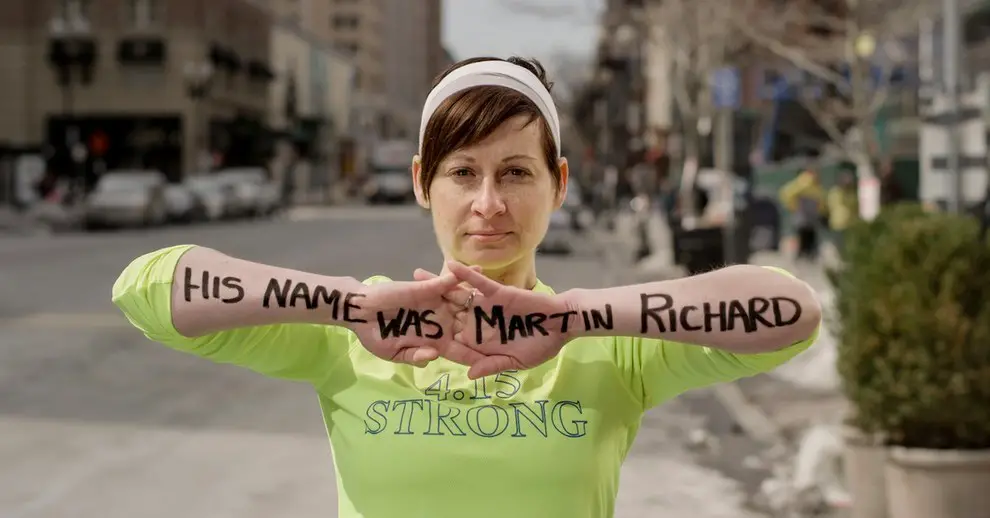
Pictured: Lee Ann Yanni, marathon survivor.
Mikey Borgard (center), survivor
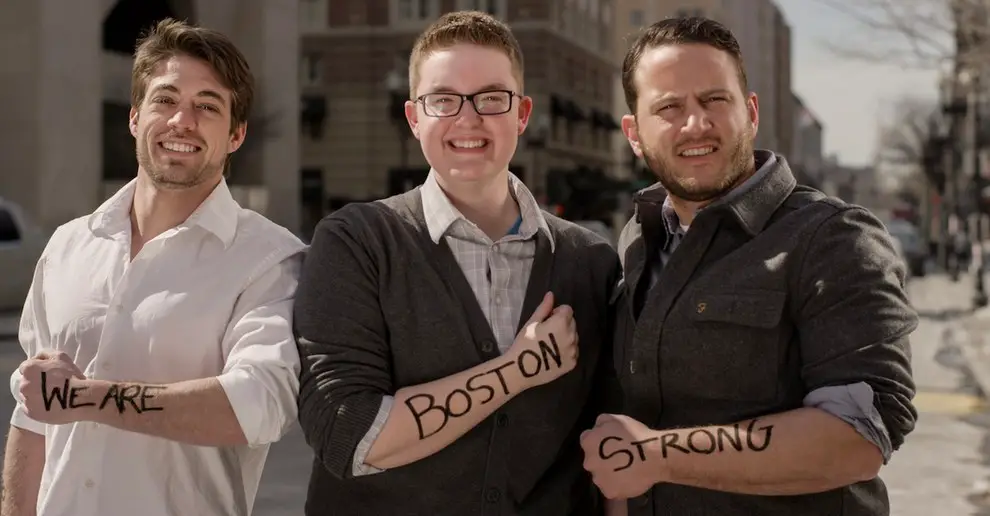
“After the Marathon, I felt alone. I thought I would never be able to speak, acknowledge what had happened, or trust anyone again. I was more afraid than I have ever been in my life. Jay and Barrett, the two other men in the photograph, showed me how to write about that pain in the past tense. They have spent the last year by my side, teaching me how to laugh again, how to accept what happened and move forward from it, and most importantly, how to forgive.
Barrett and Jay remind me every day that humanity IS good. I am immensely grateful for the many gifts they have so patiently given to me. Had it not been for their selfless actions, I would still be a scared little boy without a way out. “Boston Strong” isn’t about terrorists or explosives. The real meaning behind those words is the joy, the solidarity, the encouragement, the sacrifices, and the bravery that we are capable of together. It is about proving that malicious acts mean nothing when compared to the strength of love. It is about taking those gifts I have been so graciously given and sharing them with someone who still feels the pain.
WE are Boston Strong, and WE will never be alone.”
John Banse, survivor
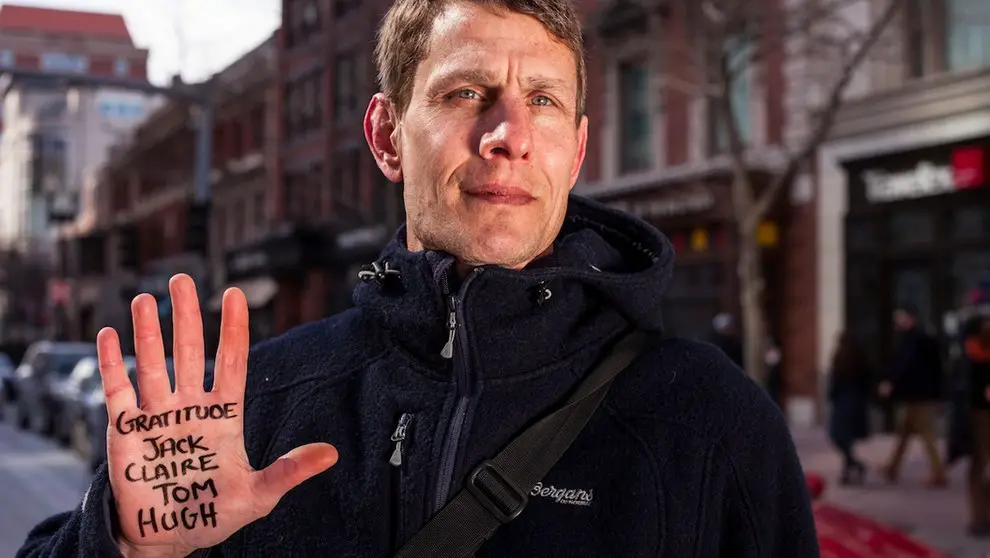
“My message was “Gratitude Jack Claire Tom Hugh.” I feel very lucky to be alive and very grateful to my family and friends, the first responders, all the folks at MGH, MEEI, and Spaulding, and the City of Boston for all their support. I am especially grateful to my four kids, whom I believe are the reason that I am still around. My soul is so full of gratitude that there is no room in me for sadness, anger, or fear.”
In memory of Lu Lingzi. August 17, 1989 — April 15, 2013.
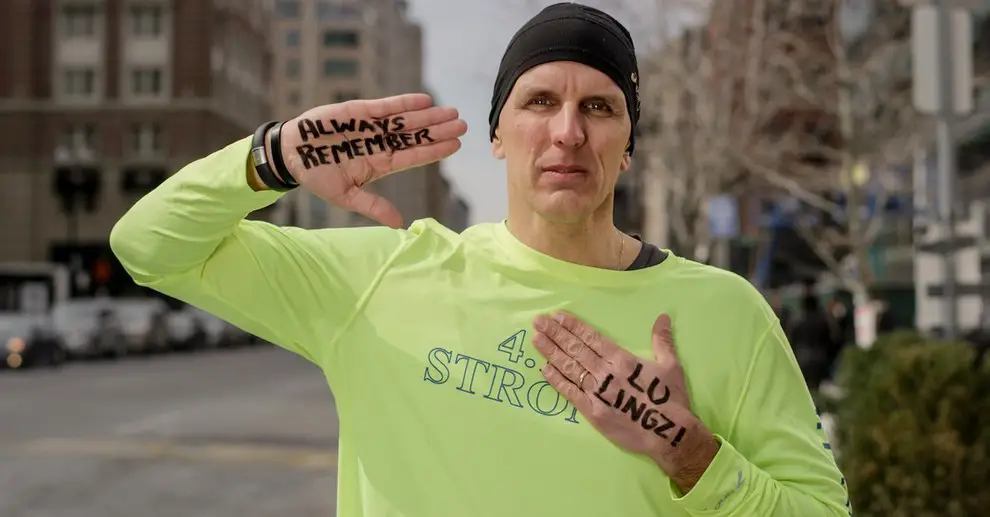
Pictured: Dave Fortier, marathon survivor.
Alyssa and Britanny Loring
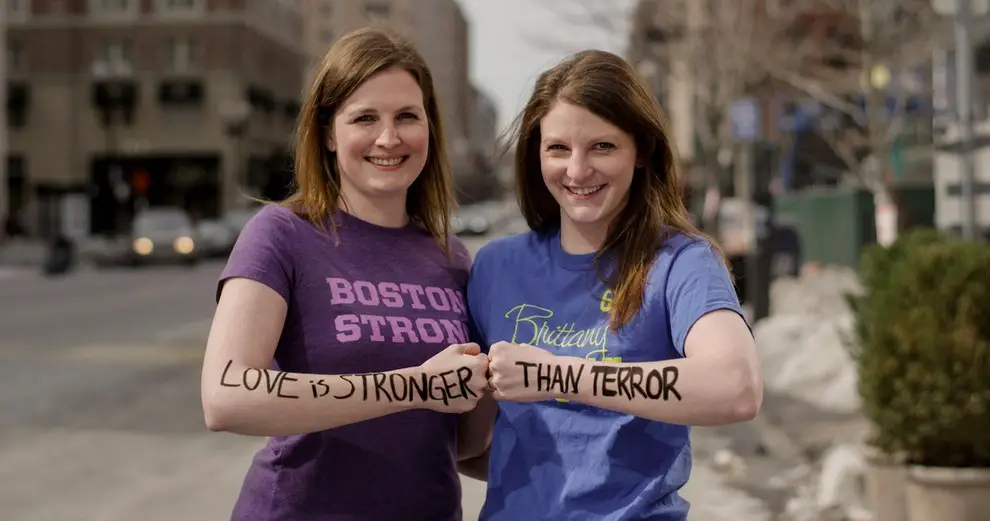
Alyssa Loring: “Since the first few moments in the hospital, Brittany has had a positive attitude about healing, and we wanted a message that epitomized what our experience has been. The love and outreach of our community far outweighs the negativity of the event.
When really bad things happen, really good people step up. Throughout the first few weeks, when Brittany was just starting her recovery, I would read her emails from friends and people from her past. They really helped brighten her day and help her maintain her positive attitude. Cards arrived at the hospital from children around the country who wanted to reach out, and their honesty and well wishes made us smile. Her colleagues at Boston College’s MBA program made a schedule and dropped off dinners for us, which was immensely helpful. It was just incredible to witness the outreach first hand.”
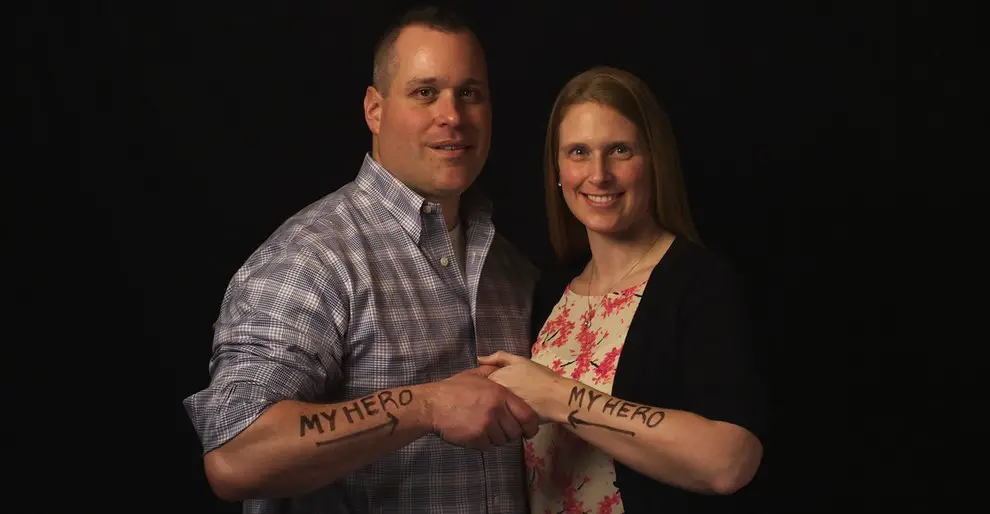
Michael Bourgault, survivor
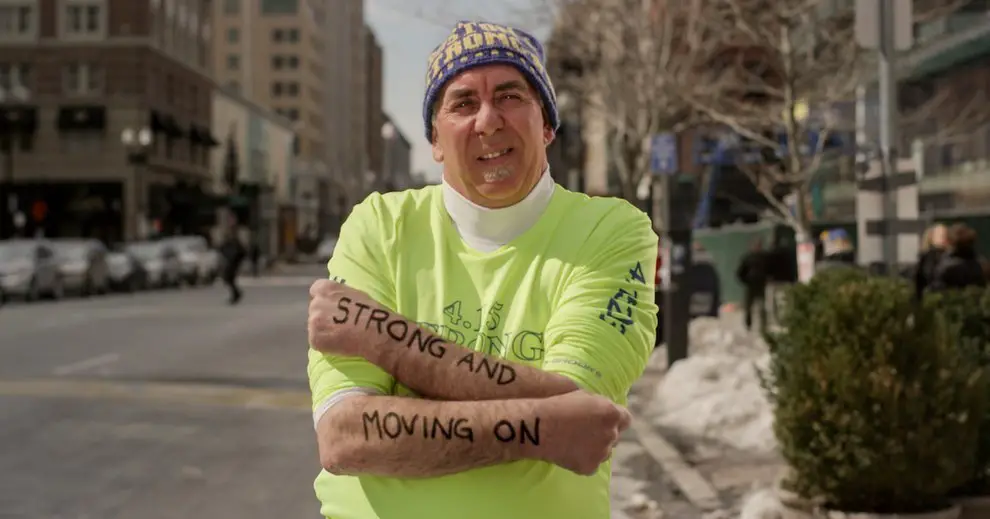
“Every day my wife and I try to move on with our lives. We try to get back to where we were before this terrible incident took place after 36 years of marriage. Some days are easier than others, but we are reminded every day now about what we went through by some part of the media/news. All we can do is “move on“ to the next chapter of our lives together. We are also reminded of what we went through by the pain and suffering we still go through every day both physically and mentally.”
